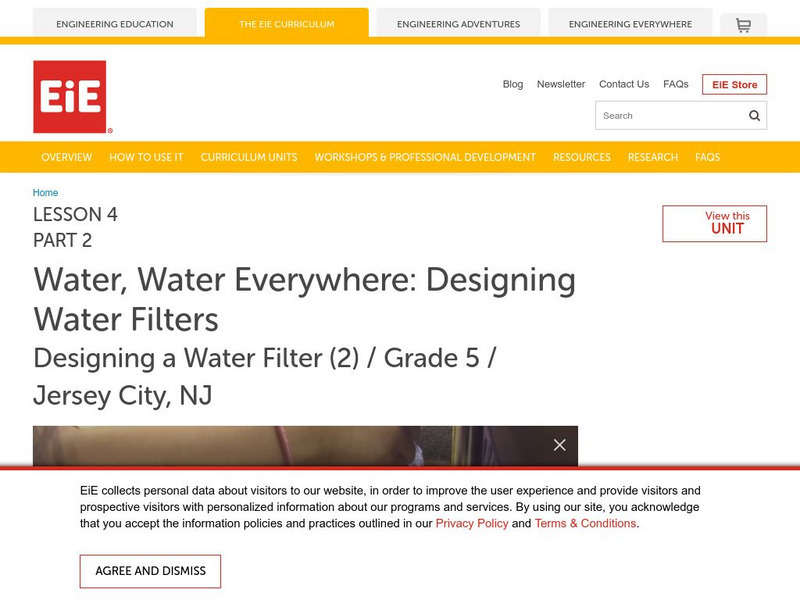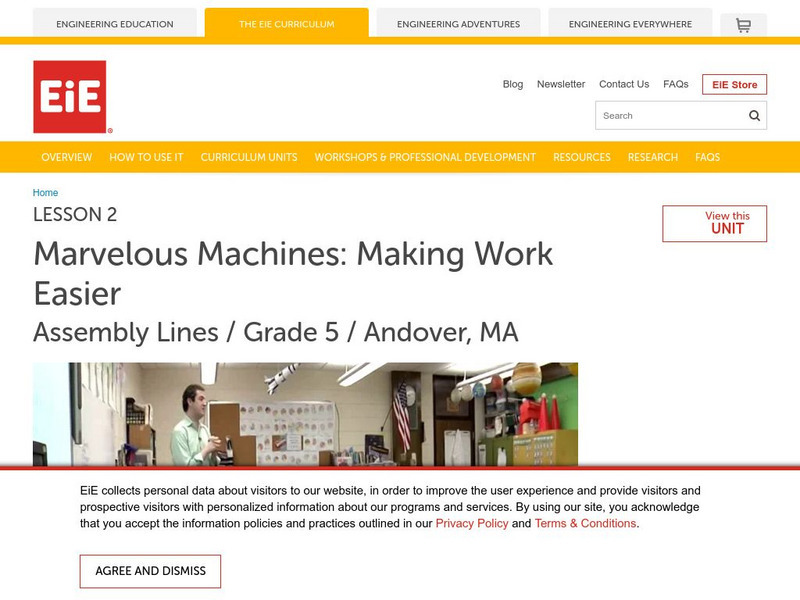Hi, what do you want to do?
Museum of Science
Museum of Science and Industry: Online Science: Videos: Moving the U 505
Time-lapse video showing the monumental challenge of moving a gigantic National Historic landmark, the U-505, to a new location. The U-505 is the only WWII German submarine in the United States. [4:50]
Museum of Science
Ei E: Designing a Model Membrane (2)
Students focus on the bioengineering problem of meeting the basic needs of an organism as they imagine, plan, create, test, and improve their own model membrane. This is Part 2. It shows the lesson being conducted in a Grade 4 classroom...
Museum of Science
Ei E: Designing a Model Membrane (1)
Students focus on the bioengineering problem of meeting the basic needs of an organism as they imagine, plan, create, test, and improve their own model membrane. This is Part 1. It shows the lesson being conducted in a Grade 4 classroom...
Museum of Science
Museum of Science and Industry, Chicago: Videos: Baby Chicks Hatching
Hatching out of an egg is hard work. View this amazing video of chicks hatching. [1:30]
Museum of Science
Eie: Engineering Is Elementary: Designing a Windmill
Students focus on the mechanical engineering problem of capturing wind energy to do work as they imagine, plan, create, test, and improve their own windmills.
Museum of Science
Eie: Engineering Is Elementary: A Magnetic Personality
Students engage in several experiments to learn more about the properties of magnets.
Museum of Science
Ei E: Catching the Wind: Designing Windmills Lesson 3 Part 1
Students predict, test, observe, and describe how sails made of different materials and shapes catch the wind. [10:10]
Museum of Science
Ei E: Catching the Wind: Designing Windmills Lesson 1
A storybook introduces the engineering challenge and context. In this story, Leif, a boy from Denmark, learns about mechanical engineering as he designs his own windmill. [13:38]
Museum of Science
Ei E: Catching the Wind: Designing Windmills Lesson 3 Part 2
Students predict, test, observe, and describe how sails made of different materials and shapes catch the wind. [14:11]
Museum of Science
Ei E: Catching the Wind: Designing Windmills Lesson 3 Part 1
Students predict, test, observe, and describe how sails made of different materials and shapes catch the wind. [7:01]
Museum of Science
Ei E: Catching the Wind: Designing Windmills Lesson 2
Students think like mechanical engineers as they observe and analyze the moving parts of common machines. [13:23]
Museum of Science
Ei E: Catching the Wind: Designing Windmills Lesson 1
A storybook introduces the engineering challenge and context. In this story, Leif, a boy from Denmark, learns about mechanical engineering as he designs his own windmill. [12:42]
Museum of Science
Ei E: Designing a Water Filter (2)
Students focus on the environmental engineering problem of providing clean water as they imagine, plan, create, test, and improve their own water filters.
Museum of Science
Ei E: Designing a Water Filter (1)
Students focus on the environmental engineering problem of providing clean water as they imagine, plan, create, test, and improve their own water filters.
Museum of Science
Ei E: Water, Water Everywhere: Designing Water Filters Lesson 3
Students test a variety of filter materials to see how well they remove particles and color from contaminated water. [10:26]
Museum of Science
Ei E: Water, Water Everywhere: Designing Water Filters Lesson 2
Students think like environmental engineers as they review a mural of a small American community, noting possible sources of pollution and suggesting ways to clean up or eliminate the source of the pollution. [11:08]
Museum of Science
Ei E: Water, Water Everywhere: Designing Water Filters Lesson 1
A storybook introduces the engineering challenge and context. In this story, Salila, a girl from India, learns about environmental engineering as she designs her own water filter. [15:34]
Museum of Science
Ei E: Marvelous Machines: Making Work Easier Lesson 4 Part 2
Students apply their knowledge of simple machines and industrial engineering as they imagine, plan, create, test, and improve their own factory subsystems. [13:01]
Museum of Science
Ei E: Marvelous Machines: Making Work Easier Lesson 4 Part 1
Students apply their knowledge of simple machines and industrial engineering as they imagine, plan, create, test, and improve their own factory subsystems. [10:41]
Museum of Science
Ei E: Marvelous Machines: Making Work Easier Lesson 3 Part 2
Students use simple machines and spring scales to determine how much force is needed to move a standard load and think about the ergonomics of using each machine. [11:25]
Museum of Science
Ei E: Marvelous Machines: Making Work Easier Lesson 3 Part 1
Students use simple machines and spring scales to determine how much force is needed to move a standard load and think about the ergonomics of using each machine. [9:59]
Museum of Science
Eie: Marvelous Machines: Making Work Easier Assembly Lines Lesson 2
Watch this model lesson where the teacher prepares the students to think like industrial engineers as they compare making a product independently with making a product in an assembly line. [12:48]
Museum of Science
Ei E: Marvelous Machines: Making Work Easier Lesson 1
A storybook introduces the engineering challenge and context. In this story, Aisha, a girl from Boston, Massachusetts, learns about industrial engineering as she designs her own factory subsystem. [10:22]
Museum of Science
Ei E: Marvelous Machines: Making Work Easier Lesson 4
Students apply their knowledge of simple machines and industrial engineering as they imagine, plan, create, test, and improve their own factory subsystems. [15:25]













